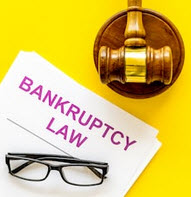How to Make Bankruptcy Go as Smoothly as Possible

Bankruptcy provides our clients with a way to get out from under mountains of debt so that they can gain some breathing room. The bankruptcy process is relatively straightforward and there is no reason to make the process more difficult than it needs be.
Having helped thousands of people successfully complete bankruptcy, we offer these tips so that you, too, can find financial freedom.
Don’t Suddenly Sell or Transfer Property before Filing
In a Chapter 7 bankruptcy, the trustee might be able to sell your non-exempt property and use the proceeds to help pay off your unsecured creditors. Non-exempt property includes things like second homes, vehicles, boats, jewelry, etc.
The bankruptcy code strictly limits what you can transfer and when. In particular, the code wants to prevent people from transferring all of their assets to a friend or family member right before filing for bankruptcy. These types of transfers are usually done with fraudulent intent, since the filer will then get the property back once they have received a discharge of their debts.
Under section 548 of the Bankruptcy Code, the trustee can sue anyone who receives an asset from the debtor within a two-year period before filing. And under section 727, a debtor is disqualified from receiving a discharge if he or she transferred assets with the actual intent to hinder or defraud creditors.
Freeze Your Credit Cards
A debtor also can’t suddenly rack up charges on their credit cards right before filing. Some people mistakenly go on a wild spending spree, under the mistaken belief that they can get the debt discharged anyway.
However, the bankruptcy trustee will look closely at any purchases you make in the 90 days before filing for bankruptcy. In particular, you cannot have more than $675 in “luxury” purchases on a credit card. If you do, then those charges are presumed to be non-dischargeable debt.
Also be careful about taking a cash advance within 70 days before filing. Any cash advance over $950 might not be discharged.
Keep Good Financial Records
Your bankruptcy filings will include detailed financial information about your income, debts, and assets. You might not have a history of keeping good financial records. In fact, you might have gotten into financial difficulty precisely because you never took the time to budget. Many of our clients express surprise that they are living beyond their means—often because they did not take the time to carefully track income and debts.
Now is the time to get very detailed and organized. Gather all financial documents so you know the current status of your debts. Find your most recent tax returns and copies of your pay stubs.
Remember that bankruptcy won’t relieve you of secured debts unless you give up the collateral, so you need to stay current on those loans as well. Keep good records of when you made payment.
Contact a South Florida Bankruptcy Attorney
Your choice of attorney will make a big difference in how smoothly your bankruptcy proceeds. By hiring an experienced bankruptcy lawyer, you can make sure to increase your chances of getting a discharge.
For more information about the bankruptcy process, please contact Nowack & Olson today. Our attorneys are here to answer any questions you have. Please call or send us an online message.
Resource:
law.cornell.edu/uscode/text/11/548
